On 31 May 2025, the Africa Business Club at London Business School, with the support of the Wheeler Institute, hosted the 23rd Africa Business Summit under the theme: Designing Africa-centric Growth Models for 2050: 25 Years to Build, 2.5 Billion Futures to Shape. Against a backdrop of mounting global uncertainty and shifting development paradigms, the Summit convened policymakers, academics business leaders, financiers, and students to explore one central question: how can Africa build inclusive, resilient, and home-grown growth models to shape its next chapter?
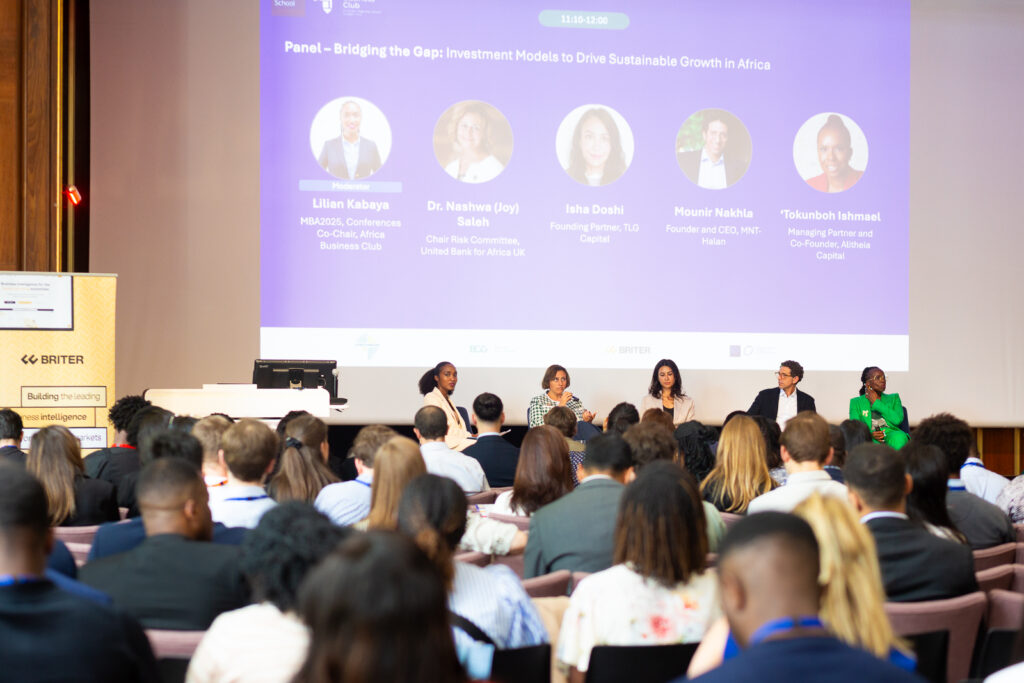
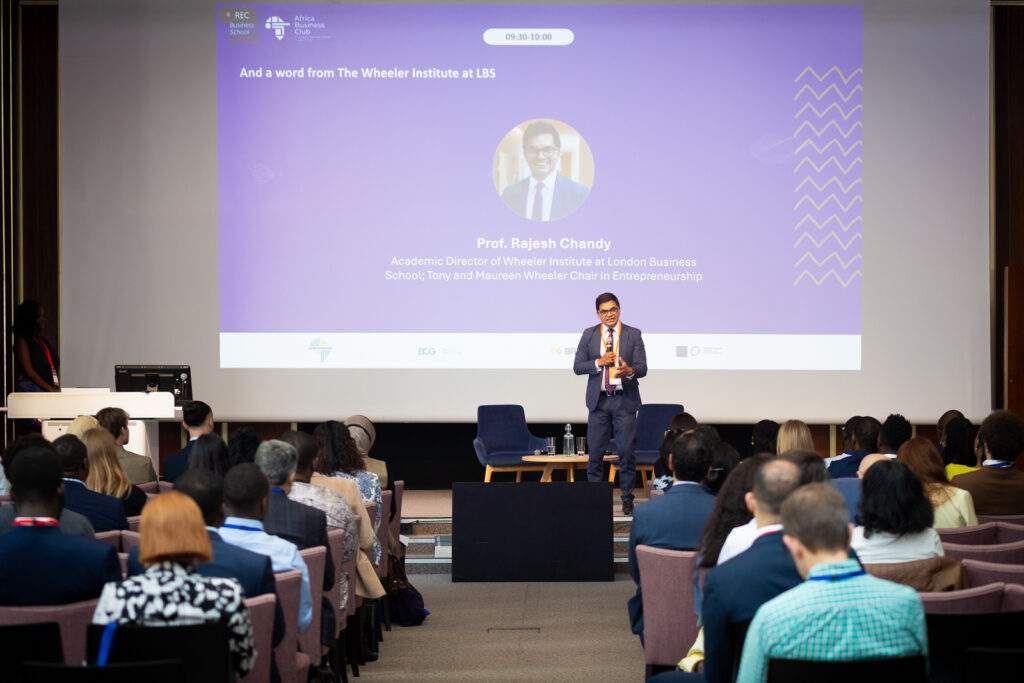
By 2050, Africa is expected to be home to 2.5 billion people. With this growth comes a pivotal opportunity: to transform Africa’s youthful population and abundant natural resources into a foundation for sustainable development. Yet, the continent continues to grapple with systemic challenges, from capital flight and energy poverty to agricultural inefficiencies and limited access to quality education. The Summit’s panels and keynotes tackled these head-on, offering a forward-looking conversation on how to shift from potential to prosperity.
Leslie Maasdorp, CEO of British International Investment (BII), opened the day with a keynote on the urgent need to rethink development finance for Africa. He argued that the post-WWII financial order is outdated and called for a new model built on blended finance, long-term partnerships, and redefined risk. With African pension funds holding over $350 billion in assets (AfDB, 2023), domestic capital mobilisation, supported by enabling regulation, must complement international flows.
Africa’s shift from the margins of global finance to a self-directed actor, Maasdorp said, will require political will, policy reform, and innovation. He stressed that the continent’s demographic dividend could be a powerful growth driver, if backed by investment in systems like healthcare.
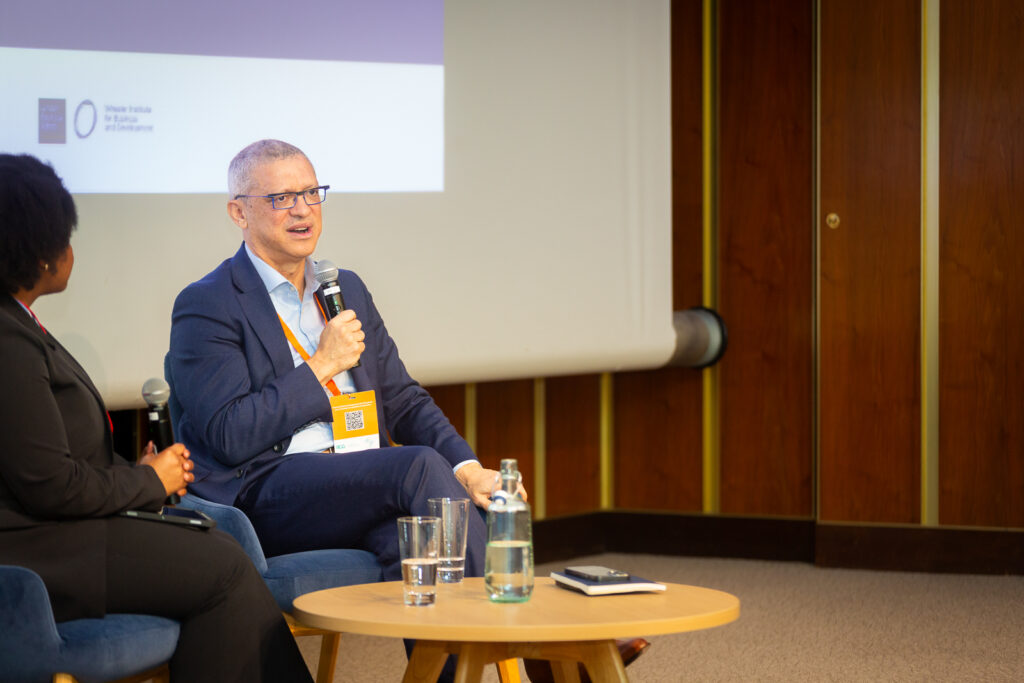
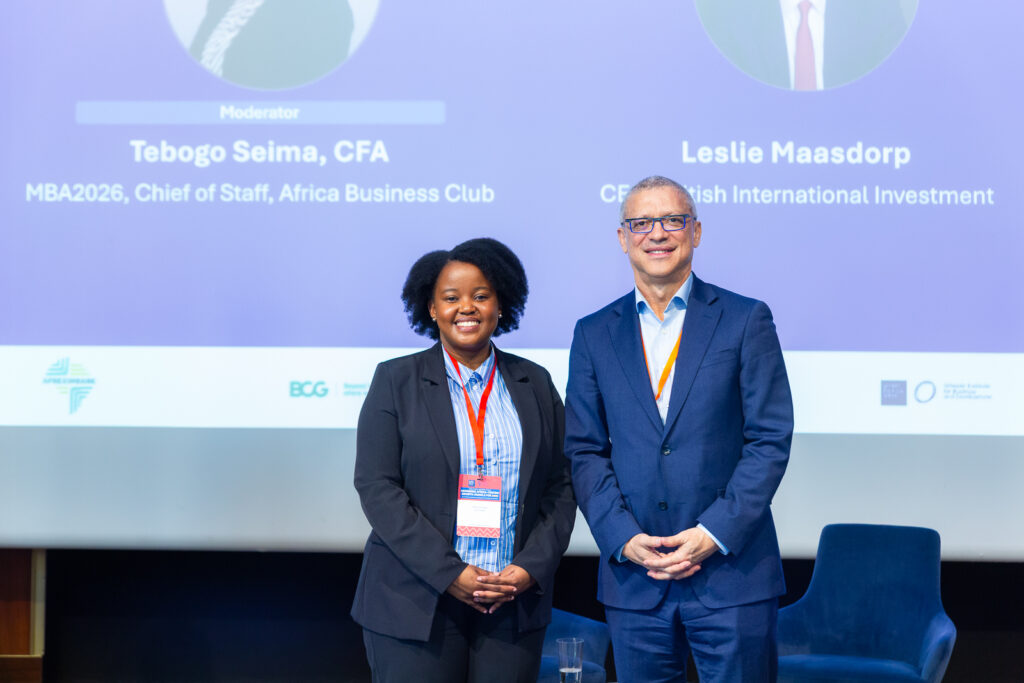
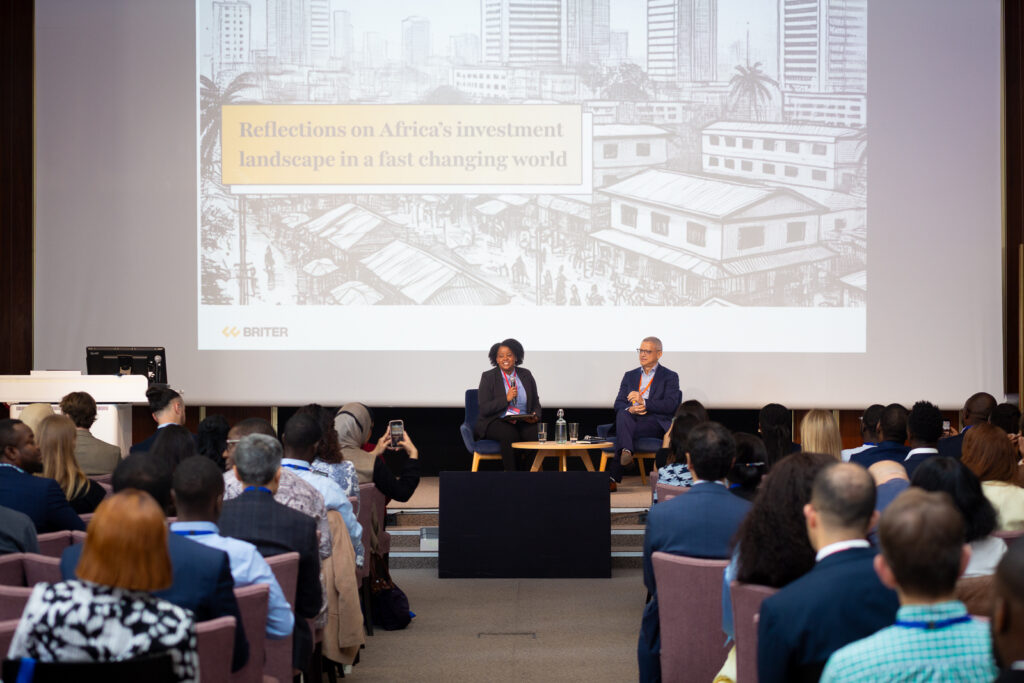
Former Nigerian presidential candidate Peter Obi followed at the end of the day with the second keynote that shifted focus to governance and leadership. Speaking to a packed auditorium, Obi asserted, “Africa is not poor; it is poorly managed.”
He highlighted the continent’s abundant natural and human resources, 60% of the world’s uncultivated arable land, 30% of known mineral reserves, and the youngest population globally. Yet, Africa contributes less than 3% to global GDP (World Bank, 2024). According to Obi, the difference lies in leadership.
“We must prioritise education, healthcare, and productivity. We must cut waste and invest in our people,” he declared, pointing to Asia’s development trajectory as evidence. His message was clear: competence, character, and courage in leadership are non-negotiable if Africa is to chart a different path.
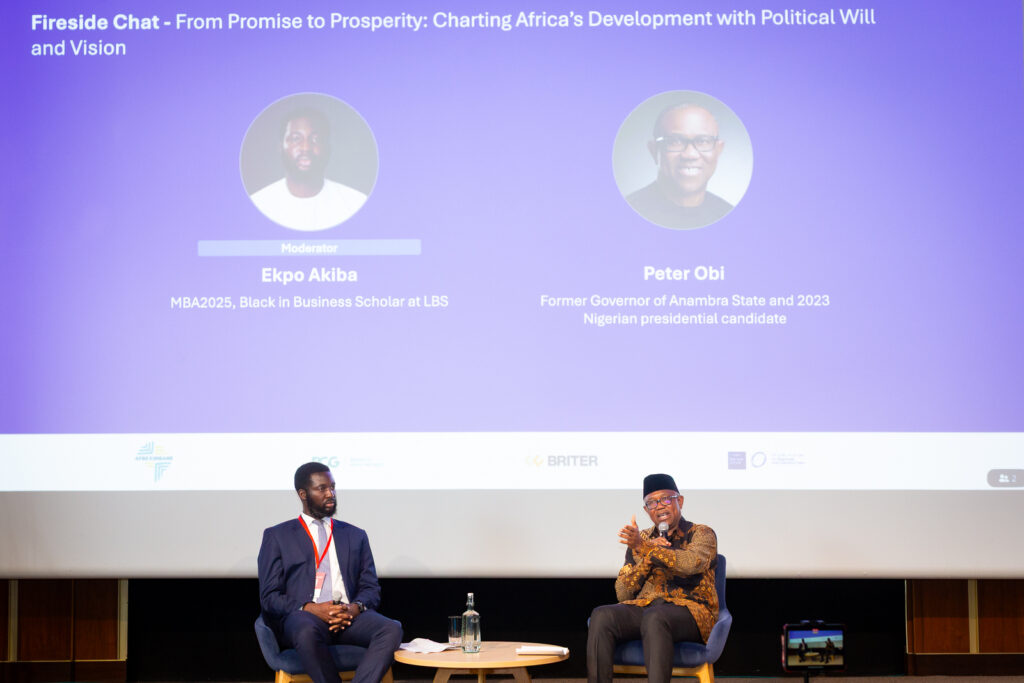
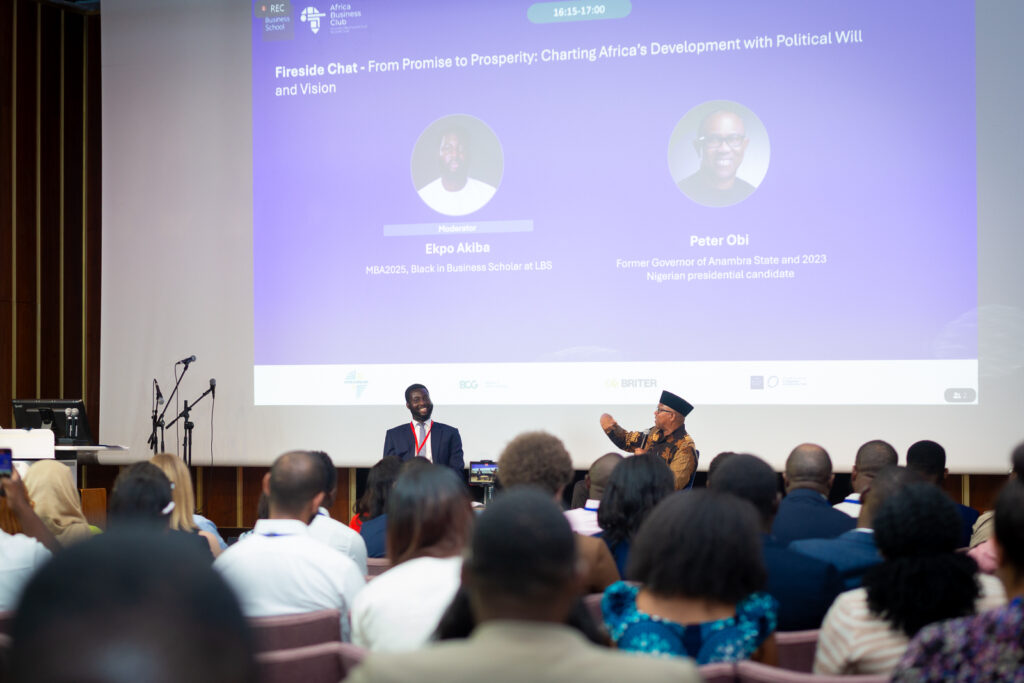
In-Depth Panel Reflections
The finance panel explored how Africa could design innovative financial tools that meet the continent where it is. Key insights include:
- Financing models tailored for Africa:
Speakers emphasised the need for innovative financial instruments that match Africa’s entrepreneurial realities. Self-liquidating instruments and revenue-based financing were presented as effective alternatives to traditional private equity, particularly for small and family-run businesses with longer growth timelines.
- De-risking through guarantees:
Guarantee-backed lending is emerging as a practical tool to bridge liquidity and risk gaps in underserved markets. These structures help unlock capital in contexts where traditional risk assessments may fail.
- Execution over structure:
Beyond financing mechanisms, panelists stressed that poor operational execution is a bigger barrier to value creation than capital structure. Support for strong management teams and operational capacity building was framed as critical to achieving scale and impact.
- The regulatory foundation:
Mobilising capital at scale requires strong institutions, transparent governance, and reform-oriented regulation. Effective capital markets, particularly in local currencies, depend on this enabling environment.
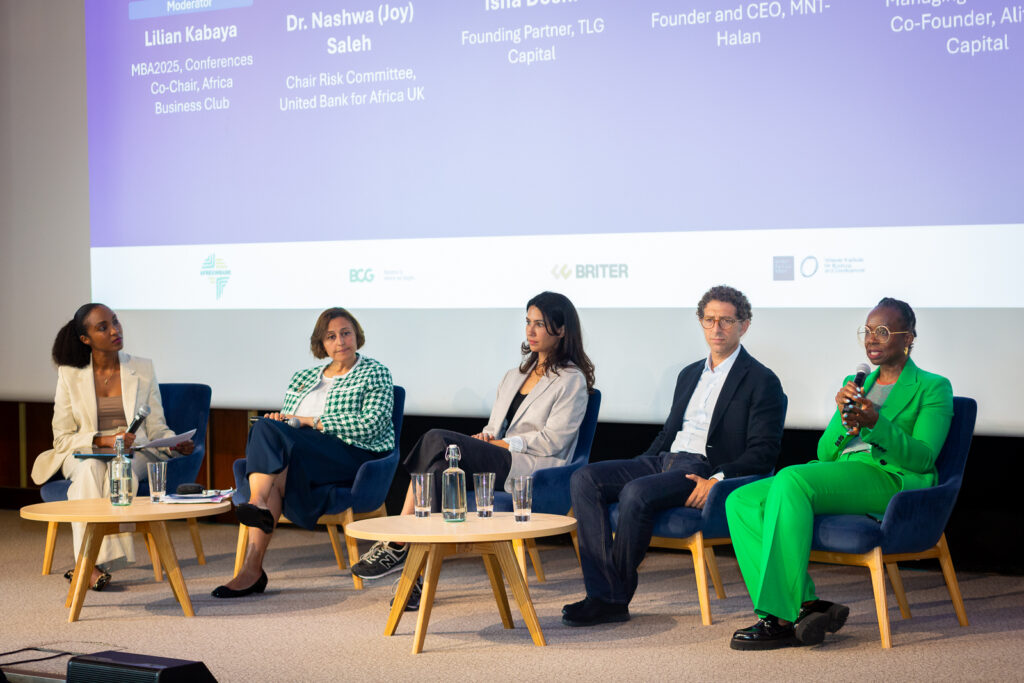
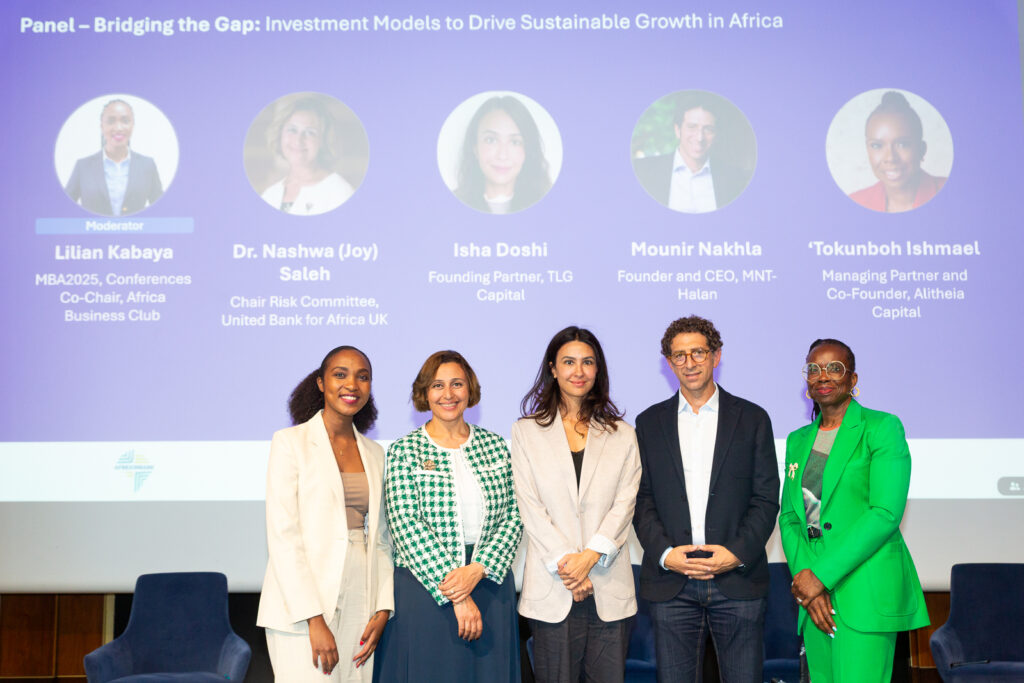
In a preceding presentation, data from Briter Bridges showed a 12% annual rise in debt-based deals, particularly in logistics and cleantech. Yet, only 5% of capital is reaching women-led startups, highlighting ongoing inequities in Africa’s investment ecosystem.
The conversation in the agriculture panel focused on transforming agriculture from a subsistence activity into an engine of economic sovereignty:
- Local innovation and productivity:
Solar-powered irrigation was showcased as a transformative tool for smallholder farmers, helping to reduce climate risks and improve yields. Yet, innovation must also focus on localising processing and distribution to retain more value within African economies. Panellists noted that agricultural firms must think creatively to meet customers where they are, including by bundling products and services — turning customer constraints into commercial opportunities.
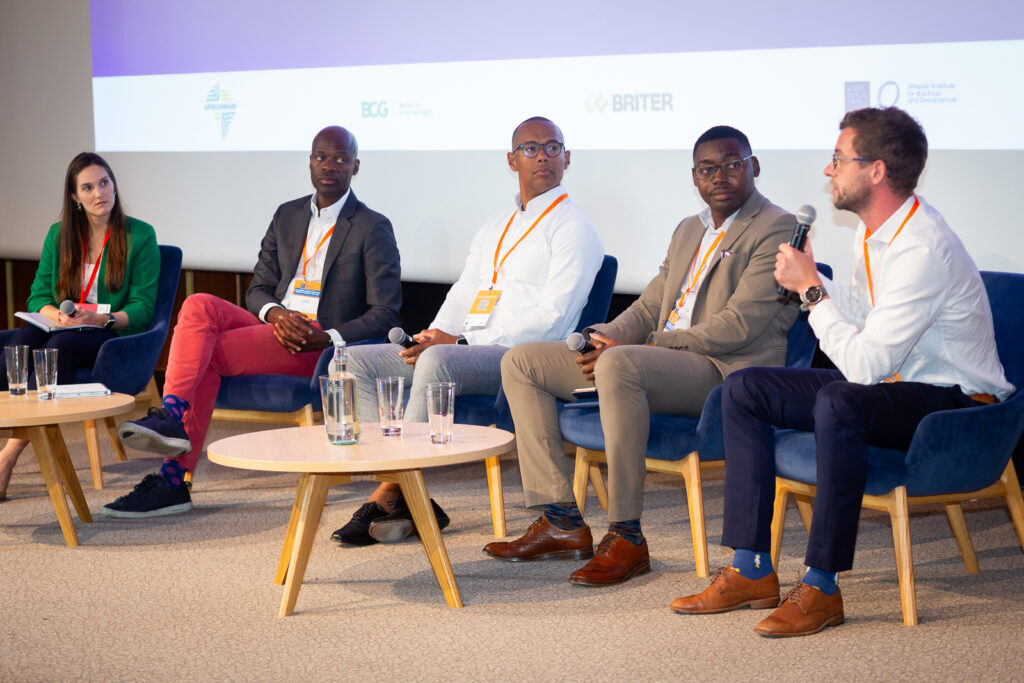
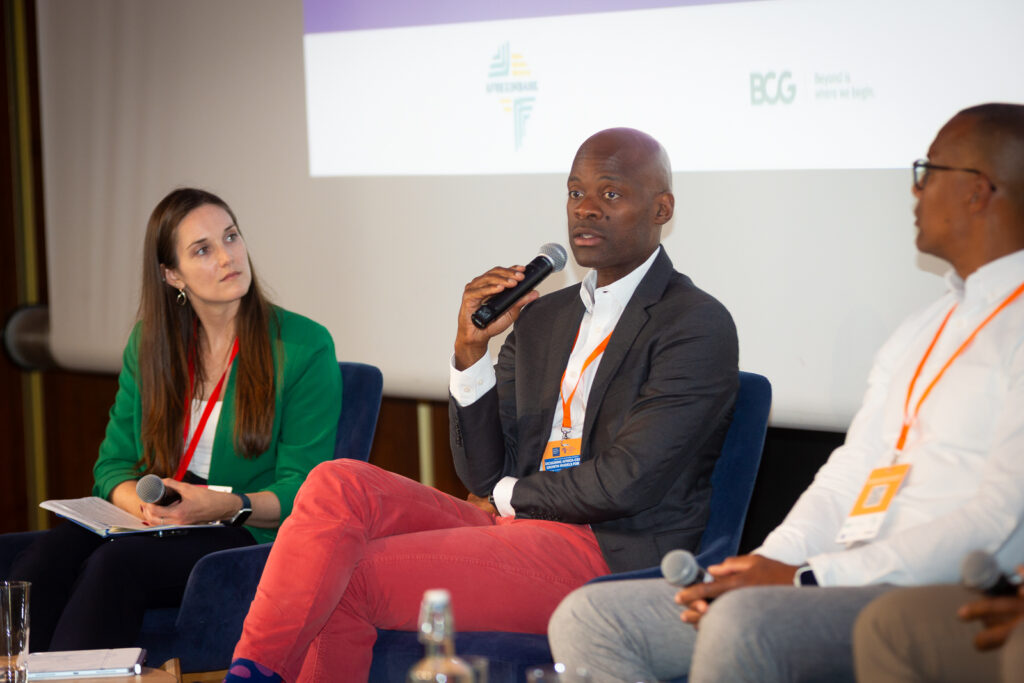
Infrastructure and investment gaps:
Speakers stressed the urgent need for catalytic investments in cold storage, logistics, and market linkages, particularly to reduce post-harvest losses and integrate smallholders into value chains. Importantly, financing must take a value chain lens, supporting not just farmers, but processors, distributors, and enablers across the ecosystem. These steps are key to making African agriculture globally competitive.
Strategic food import substitution:
Africa currently imports over $45 billion in food annually, despite its vast agricultural potential. To reverse this trend, the panel advocated for policy and investment strategies that rebalance the value chain and build domestic capacity. Food security, they argued, should be treated as industrial policy, with agriculture serving as a lever for both rural transformation and national resilience.
The energy panel explored how to bridge the continent’s energy access gap and meet growing demand from sectors like data:
- Partnerships:
There is a growing trend of private-to-private energy contracts, with off-takers like data centres developing their own energy solutions through mini-grids or sourcing from energy traders. This shift has been supported by regulatory reforms in some African countries that enable more flexible energy trading. Additionally, philanthropy was highlighted as a potential catalyst to crowd-in capital, with Africa still capturing less than 1% of the $600 billion global philanthropic pool.
- Financing:
Ensuring projects are bankable hinges on demand guarantees, which are increasingly viable given the surge in energy demand from sectors like data centres and industrial parks. Climate financing from multilateral development banks (MDBs) can play a crucial role in bridging financing gaps and securing affordable tariffs. Export-related guarantees were also identified as a growing mechanism to de-risk energy infrastructure investments.
- Capabilities:
Bridging Africa’s energy access gap will require both technical and leadership capacity. The panel emphasized the importance of vocational training to support long-term operations. Moreover, there is a growing need for public-sector leaders to build “soft” leadership skills, understanding new technologies, regulatory frameworks, and country-specific bureaucracies, to effectively deliver energy projects.
The sports panel made a compelling case for repositioning sport from the periphery of development to its strategic core.
- Sport as cultural identity and soft power:
The panel highlighted how sport is not just recreation , it is a vehicle for storytelling, nation-building, and pride. It can project Africa’s identity on a global stage, foster unity, and shape narratives from within rather than being defined externally.
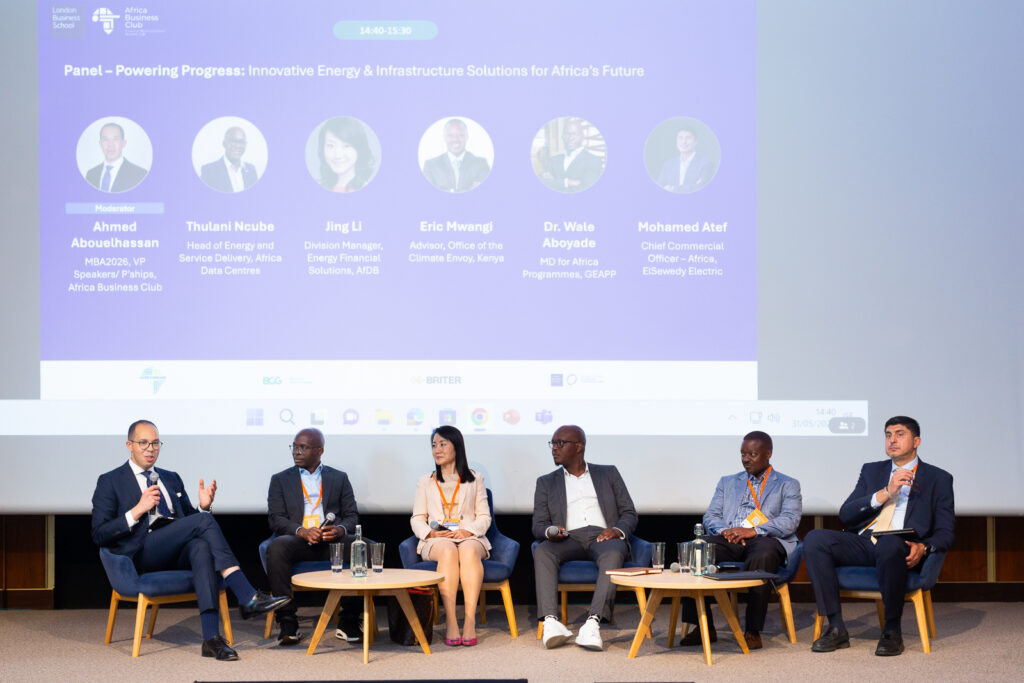
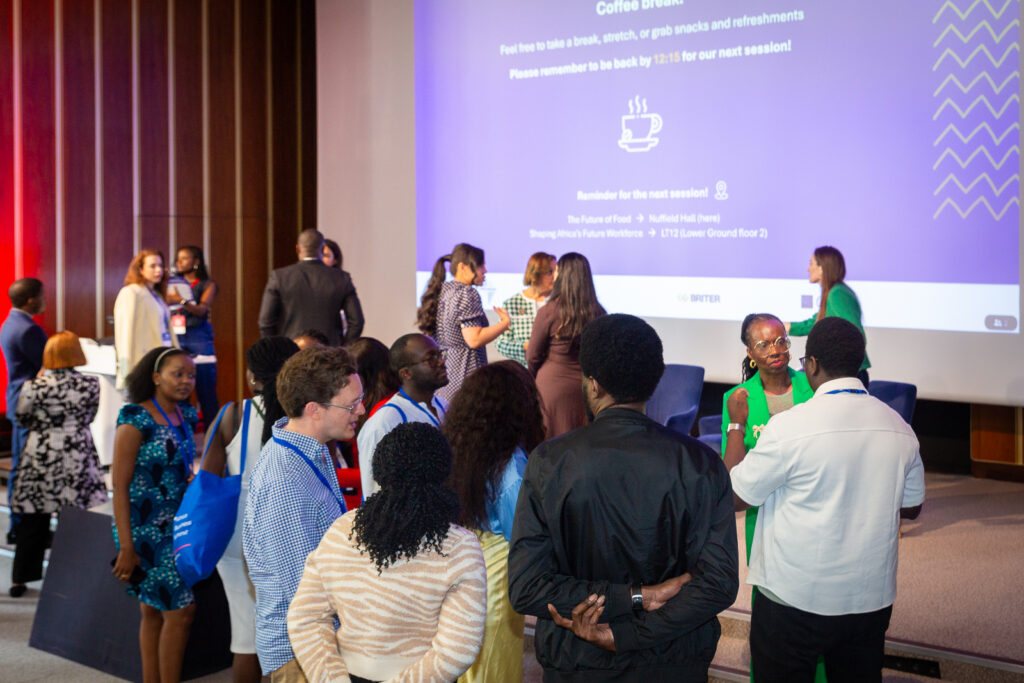
The ‘Triple Play’ approach:
Sport was reframed as a strategic development lever with three core functions:
- As entertainment, it commands mass attention and cultural relevance;
- As social impact, it channels youth energy into positive outcomes like education, leadership, and gender inclusion
- As an asset class, it holds untapped potential to attract investment and create jobs through clubs, leagues, content, and infrastructure.
Demographics and growth potential:
With Africa set to house 35% of the global youth population by 2050, investing in sport is a demographic imperative. Yet, Africa captures only a tiny portion of the $800 billion global sports economy (PwC, 2023). The panel urged more strategic capital flows to convert this youthful energy into sustainable industry growth.
In education panel, the speakers challenged the continent’s continued mismatch between educational systems and economic needs:
- Education–Economy Mismatch:
The panel underscored a pressing challenge: Africa’s education systems are not equipping learners for the economies they must power. Heavy reliance on rote learning and outdated curricula fails to prepare students for dynamic, tech-driven labour markets. With tertiary enrolment still below 10% in many African countries (UNESCO, 2024), the talent pipeline remains constrained.
The promise of digital transformation:
Speakers highlighted scalable interventions already bridging this gap. Platforms like Remoteli and Google’s training initiatives are helping young Africans access remote global work opportunities and develop future-proof digital skills. These models show that with the right ecosystem, Africa can leapfrog into the digital economy.
Call for systemic reform:
The panelists were clear: technology alone isn’t the solution. Curriculum reform, investment in skills development, and inclusive access must go hand in hand with digital advancement. Without structural shifts, tech will exacerbate rather than solve existing inequalities.
The Summit opened with a charge: to move beyond talking about Africa’s potential, and instead to construct Africa’s future. Professor Rajesh Chandy of the Wheeler Institute urged attendees to adopt a “copy, edit, paste” approach, learning from global best practices, but adapting them to local conditions. From finance to food, energy to sport, the day proved that Africa has no shortage of ideas. What remains is the collective will to act.
The Africa Business Summit team
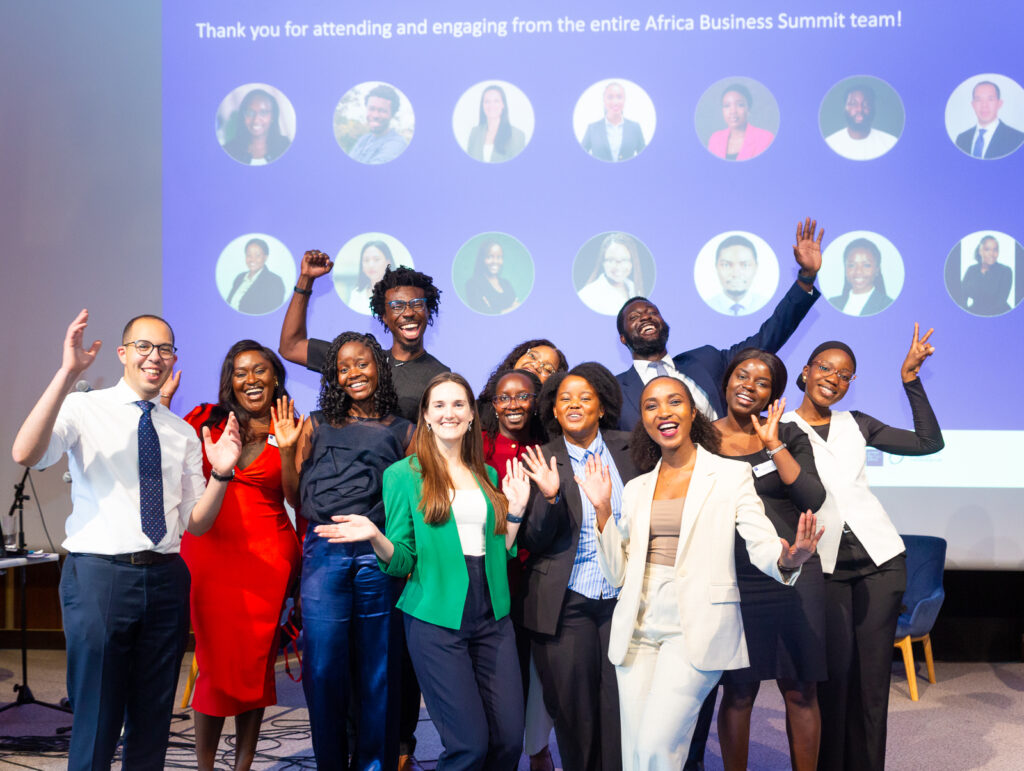
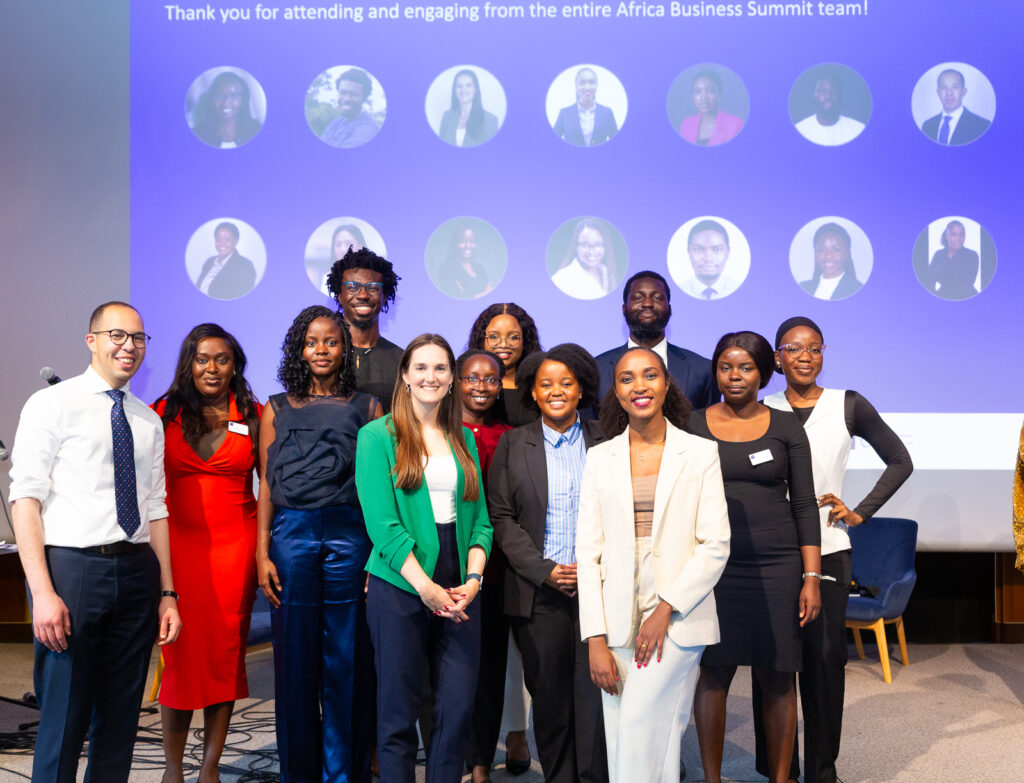
The Africa Business Club is a student-run club at London Business School. They exist to promote engagement on the Africa Business landscape within the school. The theme for the summit, “Designing Africa-Centric Growth Models for 2050: 25 years to build, 2.5 billion futures to shape”, focused on African-led, homegrown models that address challenges while fostering inclusive, long-term development. Key sectors like agriculture, technology, energy, education, and governance will lead the conversation.
The Summit will brought together diverse stakeholders to collaborate on actionable strategies that ensure Africa’s future growth is not only sustainable but designed to meet the unique needs of the continent and its people.
The organising team included: Deb Carey MBA2025, Lilian Kabaya MBA2025, Precious K. MBA2025, Pantaleon (Jnr) Anani MBA2025, Ekpo Akiba MBA2025, Aminat Sokunbi MBA2025, Ahmed A. MBA2026, Tebogo Seima MBA2026, Hauwa Umaru, FCCA, MBA MBA2025, Ifeyinwa (Ify) Osakwe MBA2026, Precious Akinkuolie MBA2026, Sinentokozo Matsebula CA(SA) MBA2025, Alex Wambugu MBA2026, Karen Rakotondralambo, Karen Rakotondralambo MBA2026.
About the author

Tebogo Seima, a CFA Charterholder, is an MBA candidate at London Business School and a recipient of the prestigious Laidlaw Foundation Women in Business Scholarship. With over five years of experience in debt capital markets and ESG transactions, Tebogo has sourced over $150 million in funding and led initiatives to promote financial inclusion across African markets. Previously, she contributed to financial services research at ABSA Group and the South African Reserve Bank. A graduate of the University of Cape Town with a Bachelor of Business Science in Economics, Tebogo is passionate about mentorship, community engagement, and advancing opportunities for women in business.
References
African Development Bank (AfDB) (2023). African Economic Outlook 2023: Mobilising Private Sector Financing for Climate and Green Growth. Abidjan: AfDB.
Briter Bridges (2025). Africa Investment Report 2024. [Presentation at Africa Business Summit, London Business School, 31 May 2025].
Food and Agriculture Organization (FAO) (2023). The State of Food and Agriculture 2023: Accelerating Rural Transformation. Rome: FAO.
International Energy Agency (IEA) (2024). Africa Energy Outlook 2024. Paris: IEA.
Organisation for Economic Co-operation and Development (OECD) (2024). Private Philanthropy for Development 2024. Paris: OECD.
PricewaterhouseCoopers (PwC) (2023). Sports Outlook: At the Starting Line of Growth. London: PwC.
UNESCO (2024). Global Education Monitoring Report 2024: Education and the Future of Work in Africa. Paris: UNESCO.
World Bank (2024). World Development Indicators 2024. Washington, DC: World Bank.
